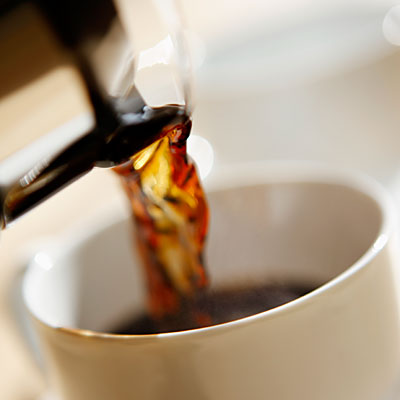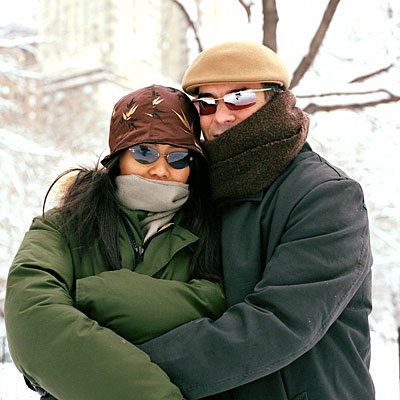8 April 2011 Last updated at 06:09 GMT
Drinking more than a pint of beer a day can substantially increase the risk of some cancers, research shows.A large Europe-wide study in the British Medical Journal found that one-in-10 of all cancers in men and one-in-33 of all cancers in women are caused by past or current alcohol intake.
For alcohol-related cancers, one-in-three in men and one-in-20 in women are caused by any excessive drinking.
The Department of Health said it was taking action to target drinking.
Cancer charities say people should limit their drinking to lower the risk.
The study calculated that in 2008, current and past drinking habits were responsible for about 13,000 cases of alcohol-related cancer in the UK, out of a total of 304,000 cancer cases.
Previous research has shown a link between alcohol consumption and cancers of the oesophagus, liver, bowel and female breast.
When alcohol is broken down by the body it produces a chemical which can damage DNA, increasing the chance of developing cancer.
Glass too far
This research found that individuals who drank more than two standard drinks a day for men and one drink a day for women were particularly at risk of alcohol-related cancers.
“Cutting back on alcohol is one of the most important ways of lowering your cancer risk”
Sara Hiom, Cancer Research UK
A standard drink contains about 12g of alcohol, which is equivalent to a 125ml glass of wine or a half pint of beer.
Yet NH guidelines are a little more relaxed, saying that men should drink no more than three to four units a day while women should not go over two to three units a day.
Of the cancers known to be linked to alcohol, the researchers suggest that 40 to 98% occur in people who drink more than the recommended maximum.
The results were gathered as part of a large study following 363,988 men and women in eight European countries aged between 35 and 70.
The European Prospective Investigation into Cancer (EPIC) study tracked their levels of drinking and how this affected their risk of cancer.
Researchers then looked at figures on how much people drink in each country, including the UK, taken from the World Health Organisation.
'Avoidable' cancer cases
The study focuses on France, Italy, Spain, the Netherlands, Greece, Germany, Denmark and the UK.
Madlen Schutze, lead researcher Alcohol linked to risk of cancer and study author, from the German Institute of Human Nutrition, said that many cancer cases could be avoided if alcohol consumption was limited.
"And even more cancer cases would be prevented if people reduced their alcohol intake to below recommended guidelines or stopped drinking alcohol at all," she said.
Sara Hiom, director of health information at Cancer Research UK, said that many people do not know that drinking alcohol can increase their cancer risk.
"In the last ten years, mouth cancer has become much more common and one reason for this could be because of higher levels of drinking - as this study reflects.
"Along with being a non-smoker and keeping a healthy bodyweight, cutting back on alcohol is one of the most important ways of lowering your cancer risk."
Cutting back
And Ed Yong, from Cancer Research UK, warned of the dangers posed by consuming even small amounts of alcohol.
"The more people drink the higher their risk of cancer becomes so even light or moderate levels can increase the risks to some extent, but heavier drinking will increase it even more," he said.
He added that increased drinking in the general population could lead to a "higher cancer burden in the future" unless people took steps to reduce their alcohol consumption.
Dr Rachel Thompson, deputy head of science at World Cancer Research Fund, said that the research adds weight to what we already know about the link between alcohol consumption and cancer.
"The WCRF recommends that if people are to drink alcohol they should not consume more than two drinks a day for men or one a day for women.
"The German study underlines the importance of not exceeding these limits," said Dr Thompson.
The Department of Health is set to publish an alcohol strategy in the summer.
It is expected to included plans to stop supermarkets selling cheap alcohol, and tighten up licensing laws which were relaxed under the previous government.




